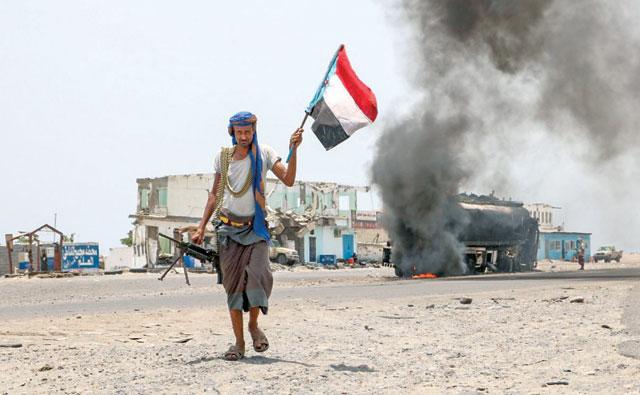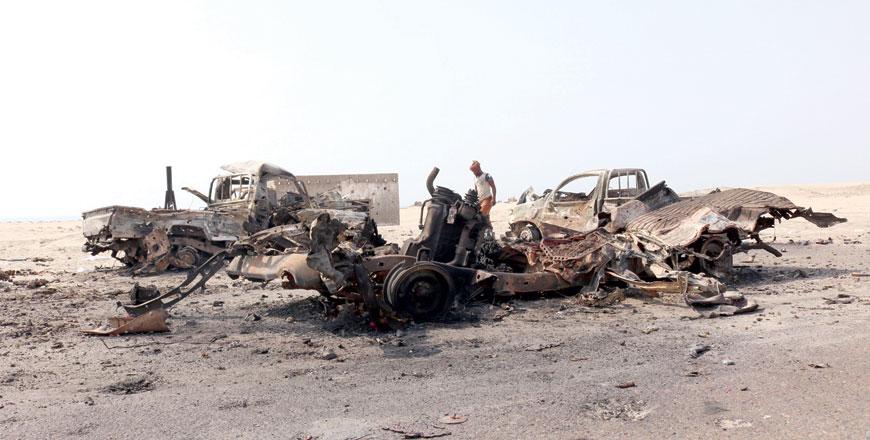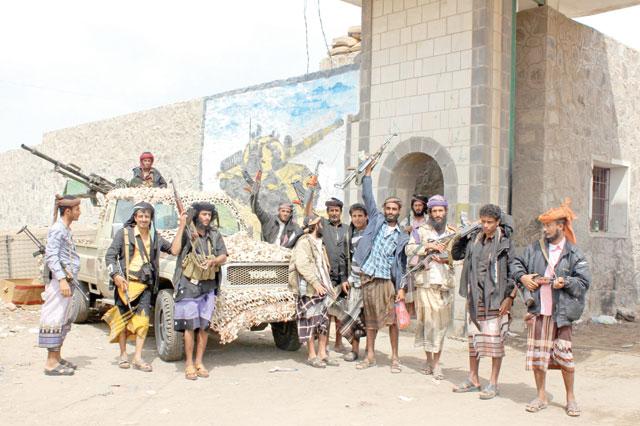You are here
Yemenis hit the streets as economy tanks
By AFP - Sep 02,2018 - Last updated at Sep 02,2018

Protesters block a street with burning tyres after the Yemeni riyal has severely plunged against foreign currencies, in Aden, Yemen, on Sunday (Reuters photo)
ADEN — Hundreds of Yemenis took to the streets of Aden Sunday to protest against the rising cost of living in the war-torn country, as the local currency plummets against the dollar.
For more than a year, the government has been unable to pay salaries, and the riyal has lost more than two-thirds of its value against the dollar since 2015, when Saudi Arabia and its allies joined the government’s fight against Yemen’s Houthi rebels.
The economic downturn, along with a blockade on the rebel-held international airport and ports, has left Yemenis unable to afford food staples and bottled water.
In Aden, the southern province that now serves as the government’s de facto capital, demonstrators burned tyres and blocked main roads as residents called for civil disobedience.
“We are out to demand a stop to the depreciation of the riyal and to the cause of high costs and lack of basic commodities,” Nasser Awad, a protestor, told AFP.
“The government is busy with divvying up government jobs and naming people to posts, and we are suffering from the war.”
Aden resident Zahra Naser demanded her government take responsiblity for the plight of Yemenis.
“The Yemeni riyal has significantly dropped and the country is headed towards the unknown,” she said.
“Where is the government? Where are the high officials and why are they not out on the streets to see the people, their needs and their situation?”
In January, Saudi Arabia — the main ally of embattled President Abed Rabbo Mansour Hadi — announced a $2 billion bailout to help bolster the central bank.
The riyal rose briefly in January but has since plummeted by a hefty 36 percent.
In 2016, more than 1 million civil servants lost their jobs as Hadi transferred the official central bank from Sanaa to Aden.
The rebels operate their own central bank from the capital, which they have controlled since 2014.
“We don’t want to hit rock bottom, and we are asking the government to give us our rights as southerners,” protest organiser Khaled Mansour told AFP.
Southern Yemen is home to both the government and a separatist movement which calls for the reinstatement of north and south Yemen as independent states. The north and south were unified in 1990.
The separatists, mainly based in Aden, have gained traction since last year in their push for self-rule, accusing the Saudi-backed government of corruption and demanding the reinstatement of south Yemen under a Southern Transitional Council.
The Yemeni war has triggered what the UN calls the world’s largest single humanitarian crisis, with more than three-quarters of the population in need of humanitarian aid and 8.4 million at risk of famine.
Related Articles
RIYADH — Yemen's internationally recognised government will sign an agreement with southern separatists on Tuesday aimed at ending a conflic
ADEN — Southern Yemeni separatists said they arrested dozens of government loyalists in Aden on Saturday after President Abed Rabbo Mansour
ADEN — Yemeni ministers were holed up in Aden's presidential palace on Wednesday after separatist forces seized effective control of the sou


















